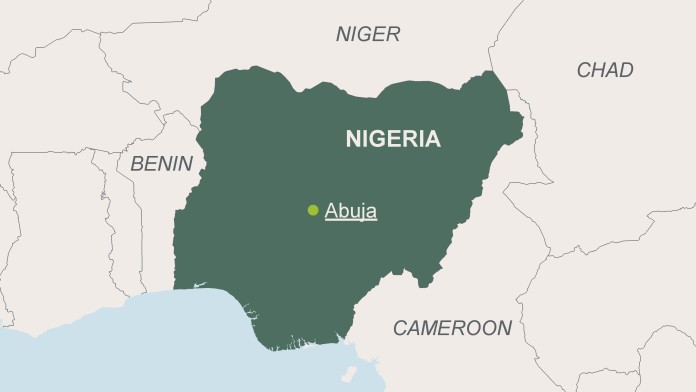
As of: 11/2022
Nigeria’s infrastructure is still inadequately developed, even compared to other emerging economies. The government will not be able to invest enough in this sector in the foreseeable future, especially as the population is steadily growing and the demand for roads and electricity is increasing as a result. Private companies are needed here. Local investors such as pension funds or insurance companies are also always looking for suitable investments in local currency. However, they have perceived the risk of losing their funds to be too high until now. KfW is now bringing supply and demand together in Nigeria with its project on behalf of the German Federal Government. Using a credit guarantee facility, it transfers all or part of the infrastructure companies’ default risks to the project partner InfraCredit.
Nigeria’s economy, which is based primarily on oil production, is also the biggest on the continent. However, among other factors, the lack of infrastructure limits the possibility of sustainable economic growth. The Nigerian state is unable to implement sufficient infrastructure projects.
However, the Nigerian financial sector currently has very few financing instruments available for private investments in infrastructure projects, such as road construction or the electricity supply. The biggest thing that is lacking is default guarantees for institutional investors, such as pension funds or insurance companies. What is needed are guarantees for loans that cover the customer credit risk in the event that the operator of infrastructure projects, such as energy or logistics companies, defaults.
In contrast to other countries in the region, Nigeria actually has institutional investors like funds or insurance companies who are well positioned for financing infrastructure thanks to their long-term investment strategies. And yet: Institutional investors shy away from infrastructure projects. They perceive the risk of losing their money to be too high.
On behalf of the German Federal Government, KfW provides a credit guarantee facility in Nigeria for private sector financing of infrastructure. Nigerian project partner InfraCredit is thus giving private companies from the infrastructure construction sector access to long-term financing in local currency for the first time. The customer credit risk is thus partially transferred from the investor to InfraCredit. The aim of this approach is to attract more institutional investors for long-term infrastructure financing.
Four major energy companies in Nigeria are already taking advantage of this opportunity, namely Viathan, North South Power, GEL Utility and NSP.
The Viathan group operates electricity supply solutions with a combined production capacity of 50 MW for public, commercial and private customers across Nigeria. GEL Utility operates an 84 MW power plant that provides reliable power to Port Harcourt Refining Company. TSL, a transport and logistics company that also benefits from the Credit Guarantee Facility, provides logistics services to a wide range of customers. The Lagos-based company operates a fleet of over 840 lorries. Company number four, Nigeria’s leading energy producer NSP, operates two large hydropower plants.
Before a company can use the credit guarantee facility, InfraCredit reviews it in detail. On the one hand, the company is set up to facilitate financing only for necessary and sustainable infrastructure. On the other hand, InfraCredit looks very closely at whether the potential recipient of the guarantee is set up in a sustainable manner – be it in terms of business conduct, legal issues, environmental and social compatibility, finances or technical setup. If appropriate, corresponding conditions are issued, compliance with which is meticulously checked by InfraCredit. In the event that a recipient of the guarantee breaches these conditions, InfraCredit is able to use a wide array of sanctioning options.
In order to encourage familiarisation with the new financing instrument, the project offers training and education for staff – both with investors and with InfraCredit.
The success and cost-effectiveness of InfraCredit’s business model is demonstrated in the high level of interest shown by companies and investors. In 2021 and 2022, there are 22 possible projects planned, namely in the sectors of transport and logistics, gas, processing of agricultural products, grid-connected energy and decentralised/locally generated energy, ITC/telecoms and social infrastructure. The careful selection of projects and the strong management of guaranteed funds have also impressed the Nigerian rating agency GCR; it awarded InfraCredit the best possible rating (AAA) in July 2019.
By introducing new financing instruments, the project contributes to the advancement of the Nigerian financial sector and the expansion of its services. Improved financing opportunities result in an increase in private investments in infrastructure projects.
This helps to create and secure new jobs both directly – because the construction of roads or the expansion of the electricity supply requires new workers – and also indirectly because businesses and companies benefit from the improved electricity supply and are able to expand their economic activities. This in turn generates income, reduces poverty and contributes to sustainable economic growth.
Private households also benefit from improved infrastructure and better public services; the water supply reaches more people and there are better transport options as a result of new roads and bridges or a more reliable electricity supply, which in turn benefits health care or the education sector.
One of the four companies, NSP, the first company to benefit from the credit guarantee, recently received another loan note that no longer required a guarantee. A sign that the instrument is being well received on the market.
The project contributes to the achievement of these following United Nations Sustainable Development Goals:
KfW Group
KfW Development Bank
Equity investments Sub-Saharan Africa II, Latin America